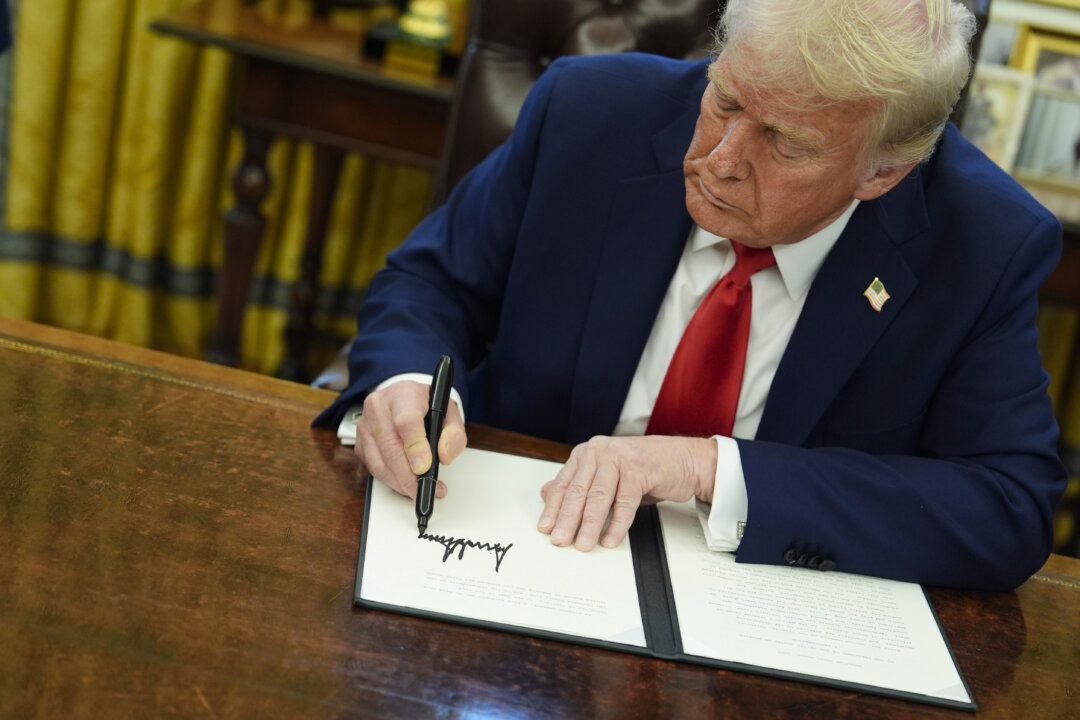The office will be run by Trump’s longtime spiritual adviser.
President Donald Trump signed an executive order on Feb. 7 establishing a White House Faith Office spearheaded by Pastor Paula White-Cain.
The office, housed within the Domestic Policy Council, will have “lead responsibility in the executive branch to empower faith-based entities, community organizations, and houses of worship to serve families and communities,” according to the order.
The office will consult with faith and community leaders to develop policy recommendations for protecting women and children, strengthening families and marriages, protecting religious liberty, combating faith-based discrimination, and other relevant areas. It will also help to identify and promote grant opportunities for faith-based and community organizations.
White-Cain, 58, is a longtime spiritual adviser to Trump. She delivered the invocation at his 2017 inauguration and later led his first administration’s Faith and Opportunity Initiative.
“Just a few minutes ago President Trump signed a historic executive order on The White House Faith Office,” White-Cain wrote in a social media post on X. “Prayers are being answered and God is moving in America.”
In another post, the televangelist said the new office would work with Attorney General Pam Bondi to combat anti-Christian discrimination in the federal government “and ensure religious liberties are upheld across the country.”
An executive order the president signed on Feb. 6 tapped Bondi to chair a Justice Department Task Force to Eradicate Anti-Christian Bias. The panel will review the activities of all executive agencies and departments to identify and eliminate any anti-Christian policies or practices. The group will also solicit input from affected stakeholders and issue recommendations for further executive or legislative action to rectify past conduct and protect religious liberty going forward.
The initiatives join a list of executive actions Trump has launched and announced to safeguard religious freedom since taking office on Jan. 20. On Jan. 23, he pardoned 23 pro-life protesters whom he said were wrongly targeted by the Biden administration. He also took action to combat anti-Semitism on college campuses and to prohibit the use of taxpayer dollars for funding abortion both at home and abroad.
The president has also signaled his intention to form a Presidential Commission on Religious Liberty. The White House has yet to elaborate on that plan.
“It’s going to be a very big deal,” Trump said in announcing the commission at a National Prayer Breakfast event on Feb. 6.
The commission, he said, “will work tirelessly to uphold this most fundamental right” of religious liberty.
“Unfortunately, in recent years, we’ve seen this sacred liberty threatened like never before in American history,” he said.
Trump pointed to the Biden administration’s prosecution of pro-life activist Paulette Harlow, 75, for violating the Freedom of Access to Clinic Entrances Act and a federal “conspiracy against rights” statute. Harlow, one of the protesters Trump pardoned, participated in a protest that involved blocking the entrance to a Washington abortion clinic.
“Paulette Harlow was sentenced to two years in prison for peacefully praying outside of a clinic, charged under an obscure law that hadn’t been used in years, selectively weaponized against Christians by the previous administration,” Trump said.
A leaked FBI memo also sparked outrage in 2023 over its depiction of traditional Catholics as violent extremists.
Trump said that under his administration, Christians will be protected from such bias and discrimination.
“While I’m in the White House, we will protect Christians in our schools, in our military, in our government, in our workplaces, hospitals, and in our public squares, and we will bring our country back together as one nation, under God, with liberty and justice for all,” he said.

